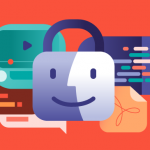
Software companies are at the forefront of digital innovation. New products can revolutionize the way businesses operate and create more efficient or creative ways in which people interact with data and each other. With digitalization efforts reaching all sectors, software companies and their products are in high demand as direct service providers and third-party software developers for companies without in-house development teams.
As contractors and developers of widely used applications, software companies are expected to deliver efficient and secure products. Data protection legislation such as the EU’s General Data Protection Regulation (GDPR) has made security necessary for software development. Companies are expected to include security features by design and by default in their products. Failure to do so can land them in hot water with data protection authorities the world over and result in expensive fines.
According to IBM and the Ponemon Institute’s 2022 Cost of a Data Breach Report, the average cost of a data breach is $4.9 million globally, and $9.44 million in the United States. High data breach costs do not only result from compliance failures but also business disruption and revenue loss from system downtown, loss of existing and new customers, as well as reputational damage. While customer personally identifiable information (PII) was the most widely compromised type of record, intellectual property was not far behind, accounting for 27% of compromised data.
Many software companies rely on the confidentiality of their intellectual property and source code to guarantee the security of their products and maintain their competitive advantage. Innovative software can be replicated, but access to the source code can be the difference between a nearly identical product and a poor copy.
Third-party access to source code can also mean that software companies risk compromising the security of their product. With access to the source code, cybercriminals can easily analyze and find weaknesses they can exploit to hack or misuse a product.
As such, the protection of source code and intellectual property plays a key role in the cybersecurity strategies of software companies. While basic security measures such as firewalls and antivirus are widely used, there are also several security blind spots that can be overlooked. Here are five measures software companies can take to address these vulnerabilities and improve their data security.
Protect data at rest and in motion
Companies tend to view cybersecurity as the need to protect sensitive corporate data from outsiders. However, insiders are many times just as big a source of security incidents. Through carelessness or malicious intentions, a company’s own employees are often at the heart of data breaches. Software companies can protect sensitive data from insider threats by using Data Loss Prevention (DLP) solutions.
Using predefined profiles for sensitive data such as PII, intellectual property, or source code as well as customized definitions, DLP tools allow software companies to apply security policies directly to the data they need to protect. Through contextual scanning and content inspection, DLP tools identify sensitive data in hundreds of file types, monitor its movements, prevent its transfer through unauthorized channels, and log and report any attempts to transfer it.
Sensitive data can also be compromised because it is being stored locally on work devices, even when it is no longer needed to perform any tasks. These forgotten files can spell disaster in case of a breach. To prevent such files from becoming vulnerable, organizations can use DLP tools to scan company devices for files containing sensitive data and delete or encrypt them when they are found in unauthorized locations.
Secure collaboration tools
The use of collaboration tools is widely spread in software companies. They are an easy way for employees to boost their productivity, track tasks, and communicate more efficiently among themselves. However, employees might be tempted to share sensitive information with their colleagues while using them. This can easily become a security risk.
Collaboration tools can be officially adopted company-wide, but employees looking for more efficient ways of dealing with their workload can also start using them without the knowledge of the company. So-called shadow IT is a serious threat to data security as employees may transmit sensitive data via potentially insecure tools.
DLP solutions like Endpoint Protector can control the movement of sensitive data across popular collaboration tools such as Microsoft Teams, Slack, Zoom, and Skype. Through predefined profiles for intellectual property, source code, and PII, it identifies sensitive data across collaboration tools and applies policies that restrict its use and transfer.
Limit the use of removable devices
One of the easiest ways for data to be lost or stolen is through removable devices. In the age of the internet, many companies tend to overlook this obvious exit point for data. Once sensitive data is copied onto removable devices, it is no longer protected by the complex policies governing the security of data on company networks. Removable devices such as USBs are also more likely to be lost or stolen due to their size.
To protect sensitive data from being transferred onto removable devices, software companies can use DLP tools with device control features to block or limit the use of USB and peripheral ports as well as Bluetooth connections. Flexible DLP solutions allow companies to set access rights on both a global level and based on groups, users, endpoints, or device type. Settings can be customized depending on needs, with some computers having different or more rigorous policies enabled.
For companies wishing to allow removable devices, DLP solutions can limit their use of encrypted company-approved devices. Organizations can thus track which employees have used which device to copy sensitive files at what time. In this way, software companies can be alerted to potential attempts to exfiltrate data.
Look out for Same-Day Support
Any security products a software company chooses should offer Same-Day support also known as zero-day support for all operating systems. Zero-Day support means that the company behind the security product has access to new OS updates before their public release and has tested the compatibility of their product with them and made any necessary adjustments.
When the OS update is released, the security products will be automatically compatible with the new release, ensuring data will continue to be protected and its security will not be compromised. This is particularly important for macOS as updates can bring fundamental changes to the OS and products without Same-Day support may become inactive if incompatible.
Choose cross-platform solutions
Most software companies run multi-operating-system environments. As such, they need to address this diversity in their security tools as well. Whether antivirus or DLP, they need to choose products that will offer the same level of data protection regardless of the operating system a device is running on.
Cross-platform solutions that offer feature parity not only protect data at all times on all devices but also make managing the security solutions easier. Admins can monitor, control and modify policies from a single dashboard, ensuring a uniform and effective continued data protection on all operating systems.
Download our free ebook on
Data Loss Prevention Best Practices
Helping IT Managers, IT Administrators and data security staff understand the concept and purpose of DLP and how to easily implement it.
















